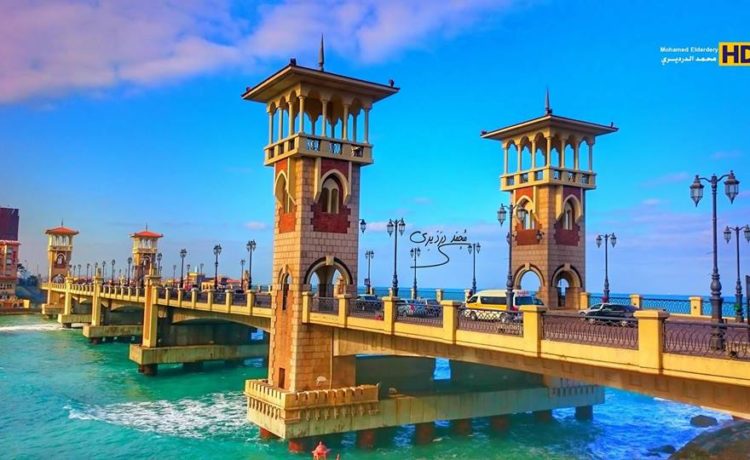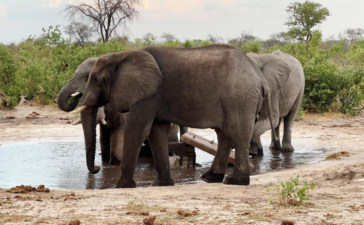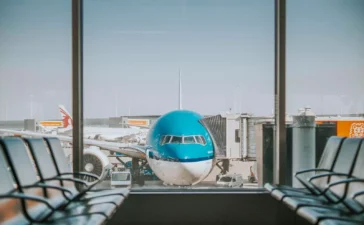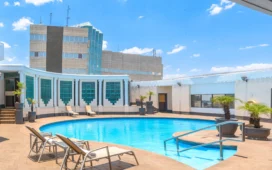Recently updated on March 27th, 2024 at 02:03 am
Founded by Alexander the Great in 331 BC, Egypt’s second largest city was the capital for 1000 years and was the setting for the epic love story of Anthony and Cleopatra. Alexandria has seen through many of its toughest economic times thanks to its virtues as a vital trading port, and today is Egypt’s largest seaport, serving about 80% of Egypt’s imports and exports.
It is an important industrial centre because of its natural gas and oil pipelines from Suez. Known as the Pearl of the Mediterranean, the city is synonymous with commerce, cosmopolitanism and a bohemian culture.
Getting there and away
Alexandria’s main airport is Borg el Arab Airport, and generally serves destinations in the Middle-East and North Africa. A better bet for African travellers would be to enter the country via Cairo International Airport, which serves 65 international airlines. At some 45km from Alexandria, the airport is not very conveniently located and getting to and from the airport can be a hassle.
It’s best to catch a taxi service (about US $26) or hire a car. The only other option is the two daily buses in each direction (9am, 2pm from Alexandria bus station and 10:30am and 4:30pm from the airport).
Getting around
Alexandria is a long city, stretching 32km along the Mediterranean coast, so public transport can be easily found anywhere along the Corniche (boardwalk). Alexandria’s yellow and black taxis are a cheap option to navigate the city. Agree on the fare before you get in, however, as the taxis aren’t metred. Alexandria’s tram system is the oldest still operating in Africa and is a novel way to get around but the route map is confusing and subject to frequent unpredictable changes. Buses and mini-buses can also be found along the city’s main routes.
Where to stay
The Four Seasons Hotel at San Stefano is a Mediterranean villa-style resort set right against the ocean. Needless to say, the views are stunning, but so is the price. Helnan Palestine Hotel is right up against the beach, surrounded by 350 acres of gardens. The hotel faces the Montaza Royal Palace, which was once the site where the late Egyptian royal family vacationed.
If you’re on a budget, try the Normandy Hotel; a pleasant family-owned inn very close to restaurants, shopping, and the largest market in Alexandria.
Eating out
While Western fast-food chains like McDonalds and KFC can all be found all over the city, the plethora of interesting restaurants means they can be easily avoided. Abou Shakra is an Egyptian chain that specialises in local grills such as shwarma, and meals of kebab, fries and salad. Elite, now an American style diner, was once frequented by the likes of D.H. Lawrence, Laurence Durrell, and Edith Piaf – a visit for the curious. For a splurge, Stefano’s (in the Four Seasons Hotel) is a stylish restaurant that serves a selection of authentic southern Italian cuisine, including excellent pasta.
Nightlife
Although the Alexandria night life is not what it once was, there are still plenty of options. Alegria is a great option for cocktails. However, it is very popular and rather exclusive – pre-reservation is a must to avoid disappointment. The San Giovanni Club offers live music, while the major hotels are reliable places to start an evening. The Four Seasons, for example, is home to two trendy bars; Le Bar and Bleu. Otherwise, the Corniche is a scenic 15km walkway along the harbour dotted with restaurants, markets and historic sights.
In the city
Thanks to its rich and ancient history, there is no shortage of historical sites in Alexandria. Fortress Qait Bey is located on the site of the fabled Lighthouse of Pharos (one of the original 7 Wonders of the World), which collapsed after an earthquake in the 14th century. The fortress was constructed in the 15th century using rubble from the lighthouse. The legendary Library at Alexandria was once the largest in the ancient world.
The treasures it housed have since been moved but the modern library is just as impressive. Also worth a visit, the AKom el Shoqafa Catacombs are three tiers of underground tombs and burial chambers; a fascinating blend of the city’s mixed Greek, Roman and Egyptian history.
Shopping
Like any modern African city, Alexandria offers a range of shopping experiences. From high-end boutiques and chain stores in shopping malls, to open air street markets, there is a wealth of choice for those looking to spend some money. Next to the Pompey’s Pillar monument is a large shopping centre for cloth and furniture called El-Saaa, where many types of cloth or clothes can be found.
A more traditional souq can be found on the western side of the Midan Tahrir, where haggling is welcomed. The Attareen neighbourhood is also notable for its antique market.
Out of the city
Alexandria is only 225km from Cairo, so if you do venture to the city, a Nile cruise is a great way to trace the history of the ancient Egyptian civilisation. Equally, no trip to Egypt is complete without a trip to the Pyramids of Giza – be aware though that this is quite the tourist trap. Closer to Alexandria, El Alamein, about 120km from the city, is the site of several battles and is currently home to a number of war memorials, cemeteries and museums. If sunbathing is more your thing, Marina is an upmarket beach-side resort about 100km from Alexandria.
Language and culture
The official language of the Republic is Modern Standard Arabic but the spoken languages are dialects of standard Arabic. Greek, Armenian and Italian are the main languages of immigrants. English is mostly spoken in and around hotels. Egypt is a predominantly Sunni Muslim country with Islam as its state religion. In terms of culture, Egypt is a trend-setter in the Arabic-speaking world, and contemporary culture is greatly influenced by Egyptian literature, music, film and television.
Health and safety
Although crime in Alexandria is rarely violent, pick pocketing is rife. Be sensible and don’t flash valuables around. Although Mediterranean in style, Egypt is an Arabic country so dress should be conservative and heads should be covered when entering places of worship. Although attacks on foreigners are unlikely, it is best to be aware of surroundings and the current political climate.











